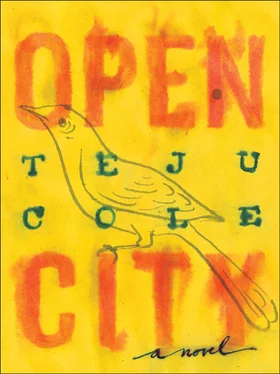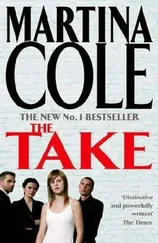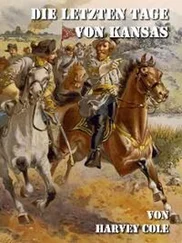At Ninety-sixth Street, I switched to the 2 express, which happened to arrive on the platform just at that moment. This carriage was brightly lit. The man sitting across from me wore a pumpkin-colored jacket, and next to him was a woman in a sky blue ski jacket and striped gloves. A few people in this train talked to each other, neither demonstrative nor loud in their manner, but enough to highlight in my mind how somber the other train had been. The brightness, perhaps, gave people permission to open up. To my right sat a man whose full attention was on Octavia Butler’s Kindred , and to his right, a russet-haired man leaned forward in his seat and read The Wall Street Journal . His natural expression was delirious, which gave him the aspect of a gargoyle, but when he straightened up, he had a handsome profile. At Forty-second Street, a man in a pin-striped suit entered holding a volume with the title You’ve GOT to Read This Book! The book was open in his hand, but as he came in and stood by the seats, he kept his eyes fixed on a spot on the floor. He did so for a long time. He kept the book open in front of him, but read nothing out of it. He eventually closed it on a finger when he got off, at Fulton. At Wall Street, more people, all of them probably workers in the financial world, got on the train, but no one got off. Just as the doors were closing at this station, I stood up and slipped out of the car. The doors closed behind me and, this assortment of inwardly focused city types still swirling in my mind, I found myself all alone on the platform.
I took the escalator up, and as I came out onto the mezzanine level, I saw the ceiling — high, white, and consisting of a series of interconnected vaults — slowly reveal itself as though it were a retractable dome in the act of closing. It was a station I had never been in before, and I was surprised that it was so elaborate because I had expected that all the stations in lower Manhattan would be mean and perfunctory, that they would consist only of tiled tunnels and narrow exits. I suspected for a moment that the grand hall now confronting me at Wall Street was a trick of the eye. The hall had two rows of columns running along its length, and there were sets of glass doors on either end. The glass, the dominance of white in the color scheme, as well as the assortment of large potted palms under the columns, made the room feel like an atrium or greenhouse, but the tripartite division of the space, with the center aisle broader than the two to either side of it, was more reminiscent of a cathedral. The vaults strengthened this impression, and what came to mind was the florid Gothic style of England, as exemplified in buildings like Bath Abbey or the cathedral in Winchester, in which the piers and their colonnades spray up into the vaults. Not that the station replicated the stone tracery of such churches. It evoked the effect, rather, by means of its finely checkered or woven surface, a gigantic assemblage of white plastic.
My original impression of the grandeur of the space, though not of its size, quickly changed as I walked through the hall. The columns could have been wrought from recycled plastic chairs, and the ceiling seemed to have been carefully constructed out of white Lego blocks. This feeling of being in a large-scale model was only increased by the lonely palm trees in their pots, and by the few groups of people I now saw seated under the nave aisle to the right. Little round tables had been set up on this side of the hall, and men sat at them playing backgammon. The hall was sparse and, because it was enclosed, full of the echoes of the few voices present. The scene, I imagined, would be different in the middle of a workday. There were five pairs of players now, under the nave aisle to the right in this evening scene, all of them black. On the other side of the hall, under the other long nave aisle, there was another pair of men, both white, playing chess. I walked among the backgammon players, most of whom seemed to be middle-aged, and their languid, focused faces and the slowness of their movements did nothing to correct my impression of being among life-size mannequins. When I moved back into the center of the nave, which was almost free of human presence, a solitary man hurrying across to the subway escalators dropped his briefcase with a loud clatter. He got on his knees, and began gathering pieces. His oversize, mouse-colored trench coat fell like a Victorian dress around him.
I walked out by the doors leading to Wall Street proper. Outside, people moved around, talking on their phones, presumably headed home, but I heard no traffic noise. The reason became clear right away when I saw the blockades that had been set up on both ends of the street, either for security or because of ongoing construction. Wall Street, from where I stood on the corner of William Street all the way down to Broadway, a distance of several blocks, was shut off from vehicular traffic, and had been transformed into a pedestrian zone; what one heard was human voices and the click of heels on pavement. I walked toward the west. People bought food from a falafel vendor whose van was parked on the corner, or walked alone, in pairs, in threes. I saw black women in charcoal gray skirt suits, and young, clean-shaven Indian-American men. Just past Federal Hall, I walked by the glass frontage of the New York Sports Club. Right up against the glass in its brightly lit interior was a single row of exercise bicycles, all of them occupied by men and women in Lycra who pedaled in the silence and looked out at commuters in the dusk. Near the corner of Nassau, a man in a scarf and fedora hat stood with an easel before him and painted the Stock Exchange in grisaille on a large canvas. A stack of completed paintings, also grisaille, of the same building seen from different angles, lay at his feet. I watched him work for a moment, as he loaded his brush, and with careful gestures applied white highlights to the acanthus of the six massive Corinthian columns of the Stock Exchange. The building itself — which, following his gaze, I now scrutinized more closely — was illuminated from below with a row of yellow lamps, and with this footlighting appeared to levitate.
I went on, past Broad Street and New Street, where I noticed another sports club, this one called Equinox, from which another row of exercisers faced the street, until I came to Broadway, where Wall Street ended and at which junction stood the east façade of Trinity Church. The reappearance of traffic on Broadway startled me for a moment. I crossed Broadway and went up to the church entrance, with the unpremeditated idea that I might go inside and pray for M. He’d been sick for a while but, since his divorce came through earlier in the year, he’d taken a steep turn for the worse. He was by now completely in the grip of the delirium, and when he spoke it was with such distress that his heavily accented sentences seemed to be pursuing each other out of the troubled caverns of his mind.
I don’t blame her, he’d said to me earlier that day, any woman would do the same, I screwed up, I screwed up. I should have been more careful. I don’t find it amusing now, but I can imagine that it seems that way to other people, I can imagine that my suffering amuses people. I do so much for them, but they find my suffering amusing. I have to be responsible, though, more discipline, more and more discipline, and if I tried that I would still be married. Not that I blame her, or anyone else, they can do what they want, but I have to be responsible for the world, and none of them knows what that feels like. If I don’t organize things just right, you see, everything will be destroyed. You understand? I’m not saying I’m God, but I know what it feels like to carry the world. I feel like the little boy with his finger in the dike, like I am doing a small thing, but it takes a lot of concentration. Everything depends on this, I can’t even tell you, and I wish I didn’t have this burden, this burden that is so much like God’s own burden, but given to someone, Doctor, do you see the problem, who does not have the powers of God.
Читать дальше












